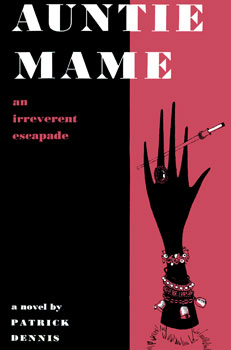
Auntie Mame: An Irreverent Escapade is a 1955 novel by American author Patrick Dennis chronicling the madcap adventures of a boy, Patrick, growing up as the ward of his Aunt Mame Dennis, the sister of his dead father.
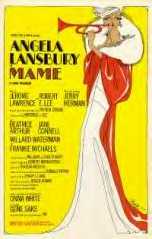
Mame is a musical with a book by Jerome Lawrence and Robert Edwin Lee and music and lyrics by Jerry Herman. Originally titled My Best Girl, it is based on the 1955 novel Auntie Mame by Patrick Dennis and the 1956 Broadway play of the same name by Lawrence and Lee. A period piece set in New York City and spanning the Great Depression and World War II, it focuses on eccentric bohemian Mame Dennis, whose famous motto is "Life is a banquet and most poor sons of bitches are starving to death." Her fabulous life with her wealthy friends is interrupted when the young son of her late brother arrives to live with her. They cope with the Depression in a series of adventures.

Bosom Buddies is an American television sitcom starring Tom Hanks and Peter Scolari created by Robert L. Boyett, Thomas L. Miller and Chris Thompson. It aired on Thursday nights for two seasons on ABC from November 27, 1980, to March 27, 1982, and in reruns in the summer of 1984 on NBC. The show features the misadventures of two single men, working in creative advertising, struggling in their industry while disguising themselves as women in order to live in the one apartment they could afford. Gender stereotypes and male/female interpersonal relationships were frequent themes.

"In My Merry Oldsmobile" is a popular song from 1905, with music by Gus Edwards and lyrics by Vincent P. Bryan.

Till The Clouds Roll By is a 1946 American Technicolor musical film produced by Metro-Goldwyn-Mayer and a fictionalized biopic of composer Jerome Kern, portrayed by Robert Walker. Kern was involved with the production, but died before its completion. It was the first in a series of MGM biopics about Broadway composers.

Born to Dance is a 1936 American musical film directed by Roy Del Ruth and starring Eleanor Powell, James Stewart and Virginia Bruce. It was produced and distributed by Metro-Goldwyn-Mayer. The score was composed by Cole Porter.

Music from the Warner Bros. Picture "Sparkle" is a soundtrack album and twenty-fourth studio album by American singer Aretha Franklin, written and produced by Curtis Mayfield. Released on June 1, 1976, the disc is the soundtrack album for the 1976 Warner Bros. motion picture Sparkle, starring Irene Cara. The songs on the soundtrack feature the instrumental tracks and backing vocals from the film versions, with Franklin's voice taking the place of the original lead vocalists.
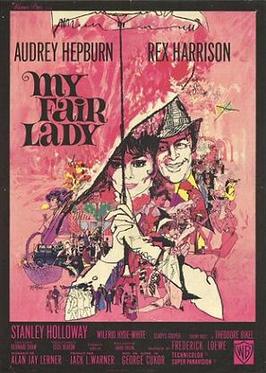
My Fair Lady is a 1964 American musical comedy-drama film adapted from the 1956 Lerner and Loewe stage musical based on George Bernard Shaw's 1913 stage play Pygmalion. With a screenplay by Alan Jay Lerner and directed by George Cukor, the film depicts a poor Cockney flower-seller named Eliza Doolittle who overhears a phonetics professor, Henry Higgins, as he casually wagers that he could teach her to speak English so well she could pass for a duchess in Edwardian London or better yet, from Eliza's viewpoint, secure employment in a flower shop.

The Music Man is a 1962 American musical film directed and produced by Morton DaCosta, based on Meredith Willson's 1957 Broadway musical of the same name, which DaCosta also directed. Robert Preston reprises the title role from the stage version, starring alongside Shirley Jones, Buddy Hackett, Hermione Gingold, Ronny Howard, and Paul Ford.
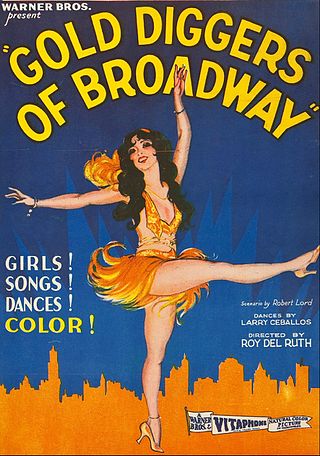
Gold Diggers of Broadway is a 1929 American pre-Code musical comedy film directed by Roy Del Ruth and starring Winnie Lightner and Nick Lucas. Distributed by Warner Bros., the film is the second all-talking, all-Technicolor feature-length film.

Jane Sperry Connell was an American actress and singer.

Mame is a 1974 Technicolor musical film in Panavision based on the 1966 Broadway musical of the same name and the 1955 novel Auntie Mame by Patrick Dennis.

Auntie Mame is a 1958 American Technirama Technicolor comedy film based on the 1955 novel of the same name by Edward Everett Tanner III and the 1956 play of the same name by Jerome Lawrence and Robert Edwin Lee. This film version stars Rosalind Russell and was directed by Morton DaCosta. It is not to be confused with a musical version of the same story that appeared on Broadway in 1966 and was later made into a 1974 film, Mame, starring Lucille Ball as the titular character.
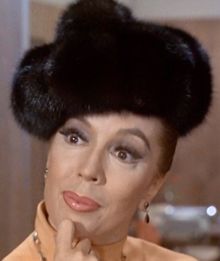
Lisa Kirk was an American actress and singer noted for her comic talents and rich contralto.

Jerry Hey is an American trumpeter, flugelhornist, horn arranger, string arranger, orchestrator and session musician who has played on hundreds of commercial recordings, including Michael Jackson's Thriller, Rock with You, "Don’t Stop ‘Til You Get Enough", "Workin’ Day and Night" and the flugelhorn solo on Dan Fogelberg's hit "Longer". Additionally, he has performed with artists such as George Benson, Nik Kershaw, Al Jarreau, Barbra Streisand, Donna Summer, Earth, Wind & Fire, Whitney Houston, Frank Sinatra, George Duke, Lionel Richie, Rufus and Chaka Khan, Natalie Cole, Aretha Franklin, Patti Austin, Toshiki Kadomatsu, Yumi Matsutoya, among many others.
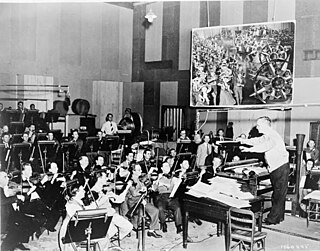
The songs from the 1939 musical fantasy film The Wizard of Oz have taken their place among the most famous and instantly recognizable American songs of all time, and the film's principal song, "Over the Rainbow", is perhaps the most famous song ever written for a film. Music and lyrics were by Harold Arlen and E.Y. "Yip" Harburg, who won an Academy Award for Best Song for "Over the Rainbow."
Milton Holland was an American drummer, percussionist, ethnomusicologist and writer in the Los Angeles music scene. He pioneered the use of African, South American, and Indian percussion styles in jazz, pop and film music, traveling extensively in those regions to collect instruments and learn styles of playing them.

Meet the People (1944) is a Metro-Goldwyn-Mayer musical comedy film made, and set, during World War II, and starring Lucille Ball and Dick Powell and featuring Virginia O'Brien, Bert Lahr, Rags Ragland and June Allyson. The film takes its title from a successful Los Angeles musical revue, which ran on Broadway from December 25, 1940 to May 10, 1941. Vaughn Monroe and his orchestra, Spike Jones and his City Slickers, and Virginia O'Brien were also in the original stage cast. O'Brien sings the hit song "Say That We're Sweethearts Again".
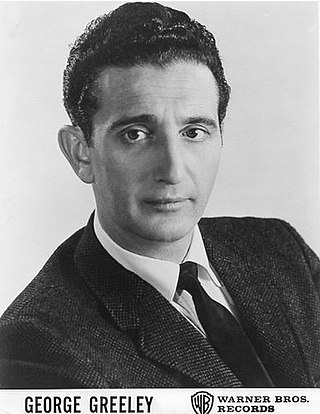
George Greeley was an Italian-American pianist, conductor, composer, arranger, recording artist and record producer who is known for his extensive work across the spectrum of the entertainment industry. Starting as an arranger and pianist with several notable big bands in the 1940s, he segued into the Hollywood radio scene, working on several nationally broadcast variety programs. After conducting an Army Air Force Band during World War II, he was hired by Columbia Pictures as a staff pianist and orchestrator. He worked as pianist on several hundred motion pictures, worked with many famous composers orchestrating their soundtrack compositions, and created original compositions of his own in several dozen movies. It was Greeley's hands that performed the piano parts that Tyrone Power mimed in The Eddy Duchin Story. Concurrent with his work at Columbia Pictures, George Greeley also worked at Capitol Records as music director, pianist, and conductor for many artists such as Gordon MacRae, Jane Powell, Jo Stafford, Frankie Laine, and Doris Day. He was hired in the late 1950s by the newly established Warner Brothers Records. George Greeley arranged, orchestrated and performed as primary artist for a series of hit recordings entitled "Popular Piano Concertos." As music tastes changed in the late 1960s, Greeley had already moved into television, composing themes and music for popular TV series like My Favorite Martian,The Ghost and Mrs. Muir,Nanny and the Professor, and Small Wonder. He performed as featured piano soloist and as guest conductor in concert appearances around the world. He died from emphysema at age 89 in Los Angeles, California.
Gloria Wood was an American singer and voice actress. Her rare voice was in the four-octave range. She was able to imitate other voices.


















